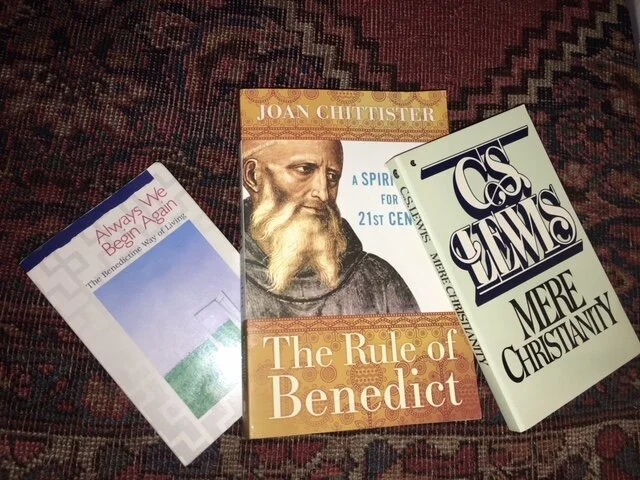Humility
“Do not imagine that if you meet a really humble man he will be what most people call ‘humble’ nowadays: he will not be a sort of greasy, smarmy person, who is always telling you that, of course, he is nobody. Probably all you will think about him is that he seemed a cheerful, intelligent chap who took a real interest in what you said to him.”—C. S. Lewis in Mere Christianity.
Frederick Buechner in Beyond Words (HarperOne, 2009) also talks about humility as not thinking ill of ourselves—but simply not assuming that we are more important than others. We are not more significant or less essential than our neighbor in God’s eyes. This definition of humility does not devalue ourselves, but values ourselves and others on the same plane. The humble person is genuinely interested in others and their well-being because he or she has a sound sense of self and does not need accolades from others in order to survive.
John McQuiston II in Always We Begin Again (Skylight Paths, 2004), his modernization of the Rule of Benedict, describes Benedict’s twelve stages of humility. This explanation differs greatly from what we have been taught about being humble. If we are to follow the Rule and to have humility, we must realize the sacredness of each moment. We acknowledge that being guided only by our own self-will can lead us astray. In our humility we will speak gently and briefly, accepting our limitations, being patient, not hiding our faults, being content, and refraining from judgment. We can never be joyful over the problems, disappointments, and losses of others.
Three writers from different ages agree in telling us that humility is important in our life in community and in our own individual development.
Joanna. Joannaseibert.com
